Ask ten Indians who the most respected actor is and you’ll hear two names again and again: Amitabh Bachchan and Rajinikanth. Respect isn’t just box office or social media buzz; it’s longevity, character, national honors, and cross-generational love. This guide sets clear criteria, shows the evidence, and gives you a practical way to answer confidently-whether you’re settling a debate, writing a quiz answer, or just curious.
TL;DR
- There isn’t one official winner, but two names consistently tower: Amitabh Bachchan (Hindi) and Rajinikanth (Tamil).
- Both hold India’s top film honor (Dadasaheb Phalke Award) and the Padma Vibhushan, and have multi-decade influence and spotless public goodwill.
- If you need a single name for a general audience: Amitabh Bachchan. For South India or mass-cult aura: Rajinikanth.
- Other deeply respected legends: Mohanlal, Mammootty, Kamal Haasan, Shah Rukh Khan, Aamir Khan, the late Irrfan Khan.
- Use a simple framework-Honors, Longevity, Pan-India reach, Craft, Conduct-to justify your pick without sounding biased.
What “most respected” really means in India
Respect in Indian cinema isn’t the same as popularity. A film can open huge and still not move how elders talk about an actor. When people say someone is the most respected, they’re weighing five things, often subconsciously:
- National recognition: Civilian honors (Padma awards), the Dadasaheb Phalke Award, and National Film Awards. These are formal, government-backed markers.
- Longevity and consistency: Decades of work across eras and tastes, not a few peak years.
- Pan-India and cross-language reach: Do they unite audiences beyond one region or language?
- Craft and cultural imprint: Performances that shaped acting standards and everyday culture-dialogues, gestures, archetypes.
- Public conduct and trust: Reliability, humility, social impact, and how they carry themselves when the spotlight isn’t on.
By this yardstick, two actors dominate-the Hindi film icon Amitabh Bachchan and the Tamil superstar Rajinikanth. Both are celebrated by the Indian government, adored across generations, and treated as institutions by fans and peers. When I’ve watched their films in Melbourne-yes, those 6 a.m. first-day shows happen here too-the energy in the room feels less like fandom and more like reverence.
The short answer: two towering names (and why)
So, who is the most respected actor in India? If you want one name for a pan-India, cross-language context, say: Amitabh Bachchan. If you’re speaking to the South, or you want to capture mythic, mass-audience devotion, say: Rajinikanth. Here’s why each fits.
Amitabh Bachchan (Hindi)
- Formal honors: Padma Shri (1984), Padma Bhushan (2001), Padma Vibhushan (2015), Dadasaheb Phalke Award (2019). These are recorded by the Government of India’s official notifications and the Directorate of Film Festivals.
- Craft and awards: Four National Film Awards for Best Actor (Agneepath, Black, Paa, Piku). He’s also synonymous with discipline and professionalism-directors mention he shows up prepared, early, and focused.
- Longevity and reach: Active since 1969, still relevant and bankable. His television stint on Kaun Banega Crorepati deepened trust beyond movies, pulling in families and rural audiences.
- Cultural imprint: The “angry young man” persona reshaped Hindi cinema in the 1970s-80s. Dialogues and body language from his roles became everyday references.
- Admiration data: In YouGov’s annual “Most Admired” surveys, he consistently appears among the top admired Indians, often as the highest-ranked actor. India Today’s Mood of the Nation polls repeatedly place him in “greatest actor” conversations.
Rajinikanth (Tamil)
- Formal honors: Padma Bhushan (2000), Padma Vibhushan (2016), Dadasaheb Phalke Award (announced 2021). These are government-verified distinctions.
- Mass connect: In Tamil Nadu and among the diaspora, the devotion is unique-think 5 a.m. shows, fan rituals, and a sense of community built around his releases. That love cuts across class, age, and language barriers.
- Longevity and crossovers: A career starting in 1975, spanning Tamil, Telugu, Kannada, and Hindi films across six decades. Very few stars retain mass hysteria for this long.
- Public conduct: Known for simplicity and grounded behavior off-screen. Fans and crew talk about humility as much as superstardom.
- Pan-India respect: Even people who don’t follow Tamil cinema “know” Rajinikanth. His mythos is a cultural export in itself.
Pick either and you’ll sound reasonable. The nuance is audience: north-leaning, older households, and formal award watchers skew Amitabh. South Indian, mass-celebration, and community vibe lean Rajinikanth.
How to judge respect: a simple, repeatable framework
If you want to be fair (and avoid fan wars), use this 5-point test. It’s simple, defensible, and works across languages.
- Honors and institutions: Have they received the Dadasaheb Phalke Award? What level of Padma awards? Do National Film Awards back their craft? Check: Ministry of Home Affairs’ Padma lists; Directorate of Film Festivals’ National Awards roll.
- Longevity: 25+ years signals staying power; 40+ years signals institution status. Are they still relevant with younger audiences?
- Pan-India presence: Filmography across regions, dubbed reach, or TV/streaming work that unites different demographics.
- Craft and influence: Did they create or redefine archetypes? Do other actors cite them as an influence?
- Public trust: Do surveys rank them highly in admiration? Do they handle public causes and controversies with maturity?
Apply this, and you’ll likely end up with Amitabh and Rajinikanth at the top. But it also explains why other legends command deep respect in their lanes:
- Mohanlal (Malayalam): Padma Bhushan (2019), Padma Shri (2001). Multiple National Awards including two Best Actor wins. Often cited for naturalistic acting and range-from mainstream to arthouse. Pan-India directors respect him as an actor’s actor.
- Mammootty (Malayalam): Padma Shri (1998). Three National Awards for Best Actor. A body of work that balances popular cinema with challenging, character-driven roles. His consistency across decades keeps his respect high.
- Kamal Haasan (Tamil): Padma Bhushan (2014), Padma Shri (1990). Multiple National Awards, famed for experimentation (makeup, character work, screenwriting). Polarizing at times, but never accused of complacency.
- Shah Rukh Khan (Hindi): Padma Shri (2005). Global star power and philanthropy. His 2023-24 resurgence reminded people of his longevity and grace with the press and fans. Respect for SRK combines charisma with generosity.
- Aamir Khan (Hindi): Padma Bhushan (2010), Padma Shri (2003). Known for quality control and social projects (Satyamev Jayate). Selective filmography but a strong trust factor.
- Irrfan Khan (Hindi/International): Padma Shri (2011), National Award (Best Actor for Paan Singh Tomar). Treasured for subtlety and world-cinema credibility. Passing in 2020 only deepened respect.
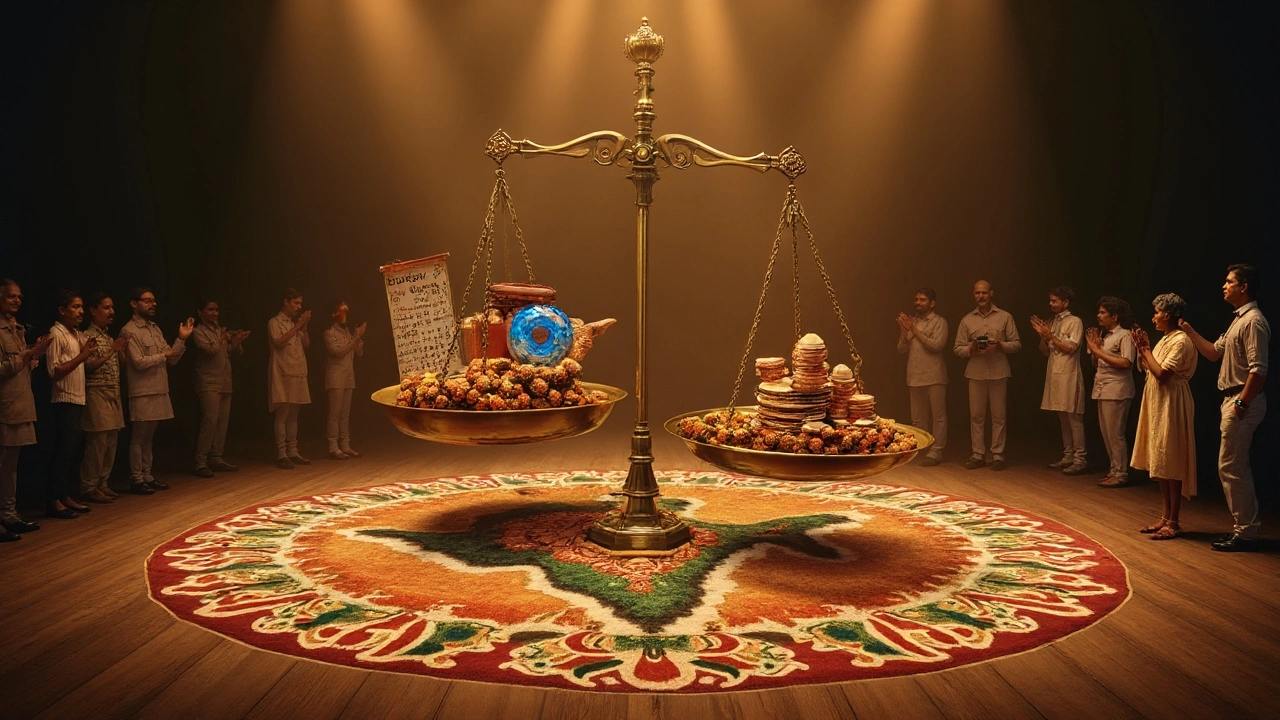
Evidence that matters: honors, data points, and context
Here’s a compact snapshot that pulls together public honors and long-term signals. It’s not a popularity contest; it’s a respect index in plain sight.
| Actor | Years Active | Top National Honors | National Film Awards (Acting) | Pan-India/Cross-Language Reach | Public Admiration Indicators |
|---|---|---|---|---|---|
| Amitabh Bachchan | 1969-present | Padma Vibhushan; Dadasaheb Phalke | 4 Best Actor | Hindi icon; TV host connecting nationwide | Regularly high in YouGov “Most Admired”; India Today MOTN |
| Rajinikanth | 1975-present | Padma Vibhushan; Dadasaheb Phalke | Multiple state awards (TN); nationally honored | Tamil base; pan-India cult; diaspora devotion | Fan rituals; cross-generational reverence |
| Mohanlal | 1978-present | Padma Bhushan; Padma Shri | Multiple including 2 Best Actor | Malayalam core; respected nationwide by filmmakers | Critical acclaim; peer endorsements |
| Mammootty | 1971-present | Padma Shri | 3 Best Actor | Malayalam core; crossover respect | Consistency across decades |
| Kamal Haasan | 1960-present | Padma Bhushan; Padma Shri | Multiple National Awards | Tamil base; Hindi/Telugu presence | Innovation credibility; auteur reputation |
| Shah Rukh Khan | 1988-present | Padma Shri | - | Global Hindi star; dubbed reach | High admiration; philanthropy visibility |
| Aamir Khan | 1984-present | Padma Bhushan; Padma Shri | - (producer wins exist) | Pan-India with quality-first brand | Trusted for social initiatives |
| Irrfan Khan | 1985-2020 | Padma Shri | 1 Best Actor | Hindi + international cinema | Posthumous esteem; actor’s actor |
What makes this credible?
- Government honors: Padma awards (Ministry of Home Affairs) and Dadasaheb Phalke Award (Directorate of Film Festivals) are official, documented, and non-partisan.
- National Film Awards: Judged by industry peers and critics, recognized as India’s most authoritative film awards.
- Public surveys: YouGov’s annual “Most Admired” is methodologically published; India Today’s Mood of the Nation is a long-running attitudes survey. Both consistently show Amitabh and Rajinikanth as outlier names for respect and admiration.
Examples, scenarios, and how to frame your answer
Different rooms need different answers. Here’s how to tailor yours without sounding hedgy.
- Pub quiz or one-line answer: “Amitabh Bachchan.” It’s the safest single name across age groups and regions.
- South Indian audience or diaspora screening: “Rajinikanth.” You’ll match the emotional truth of the room.
- Film school or cinephile chat: “By formal honors and pan-India recognition, Amitabh Bachchan; by mass devotion and cultural mythos, Rajinikanth.” Then add Mohanlal/Mammootty/Kamal Haasan for craft depth.
- Corporate presentation or media piece: Use the 5-point framework and the table. Quote government honors and a mention of YouGov/MOTN to keep it neutral.
- Family debate spanning three generations: Note how Amitabh connects through TV and classic films, while Rajinikanth bridges regions and languages. Offer both and let people pick their lens.
If you have to justify your pick fast, use this sentence structure:
- “I’d say [Name] because they have [top national honors], [X] decades of relevance, and a [pan-India/mass] connect that even non-fans respect.”
And if someone pushes back with box-office stats? Remind them respect is about institutions and time, not just opening weekend numbers.
Checklist, mini‑FAQ, and what to watch in 2025
Here’s a quick checklist you can copy for your notes.
- Honors check: Dadasaheb Phalke Award? Which Padma? National Awards count?
- Years active: 25+ or 40+? Still shaping culture now?
- Pan-India factor: Multiple languages or nationwide TV/streaming presence?
- Influence: Did they change how others act or how stories are told?
- Public conduct: How do they handle criticism, charity, and public life?
Mini‑FAQ
- Is Shah Rukh Khan the most respected now that he’s had a huge comeback?
He’s one of the most admired and beloved. For respect in the institutional sense-lifetime honors, decades of influence-Amitabh Bachchan and Rajinikanth still edge him out. But SRK’s stature has clearly grown again across ages. - Why not just pick the actor with the most National Awards?
National Awards measure craft for specific performances. Respect also weighs civilian honors, pan-India reach, and public trust. That’s why someone like Amitabh, with both awards and mass trust, sits so high. - Is Rajinikanth respected outside Tamil Nadu?
Yes. Even people who don’t follow Tamil films know and admire him-partly for his screen persona, partly for his humility. His films get celebrations across India and in diaspora hubs. - Who is the most respected in Malayalam cinema?
Most will point to Mohanlal and Mammootty. Both have multiple National Awards and decades of consistent excellence. - Has anyone received the Bharat Ratna among actors?
No film actor has received the Bharat Ratna as of the latest public records. Among artists, Lata Mangeshkar (music) and Satyajit Ray (filmmaker) have received it, but not actors for acting specifically.
Next steps (pick what fits your situation)
- Need a safe single-name answer? Say “Amitabh Bachchan.”
- Want to honor the South’s fan culture? Say “Rajinikanth,” and mention Padma Vibhushan + Dadasaheb Phalke.
- Writing for a film journal or presentation? Use the 5-point framework and cite: Government of India Padma lists, Directorate of Film Festivals (Dadasaheb Phalke and National Awards), YouGov’s Most Admired, India Today’s Mood of the Nation.
- Talking to teens who stream more than they go to theatres? Anchor on TV/streaming reach (Amitabh’s KBC) and recent cultural presence (SRK’s comeback) to explain why respect can grow or stay stable with time.
- Debate setting with fans from different regions? Acknowledge both Amitabh and Rajinikanth up front, then invite regional picks (Mohanlal, Mammootty, Kamal Haasan) for depth rather than one-upmanship.
Pitfalls to avoid
- Confusing popularity with respect: A blockbuster doesn’t automatically equal generational respect.
- Cherry‑picking a single stat: Filmfare counts, box office, or social followers can be lopsided. Balance them with honors and longevity.
- Ignoring regional legacies: India is multilingual. Respect often starts regionally and then scales.
One last thought: respect in India is a marathon, not a sprint. That’s why the same two names keep returning to the top of the conversation, year after year.
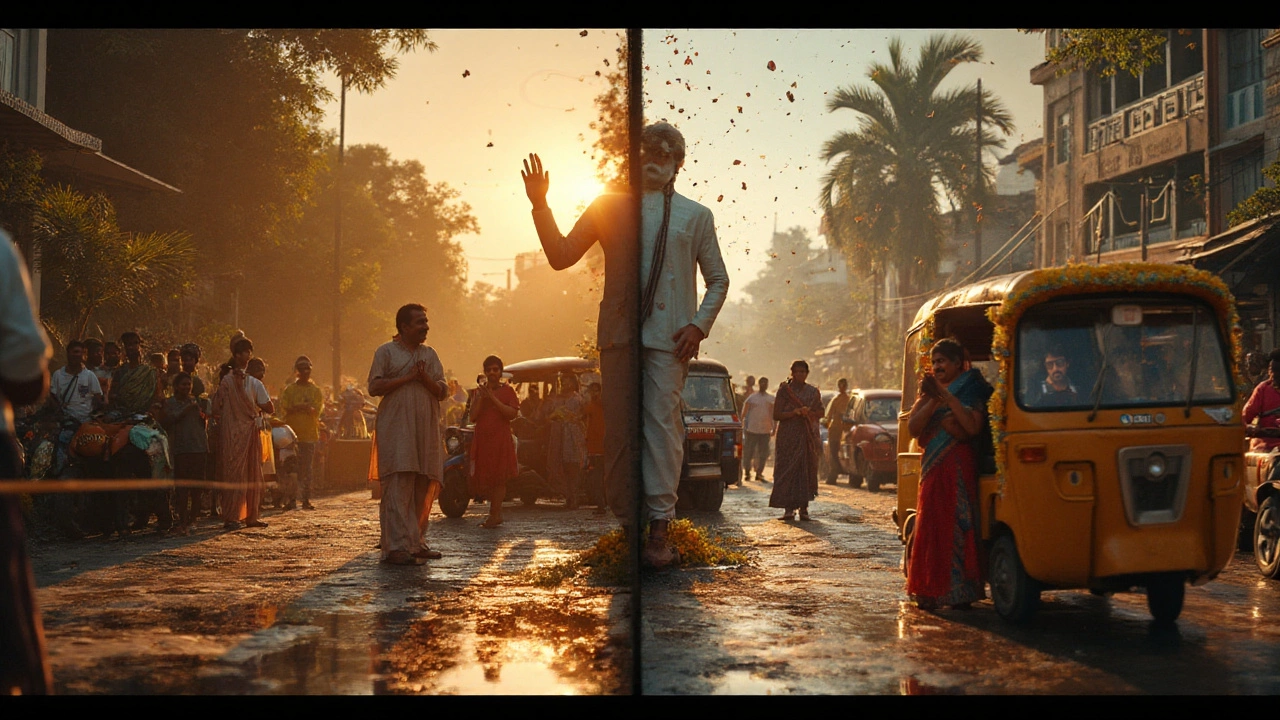

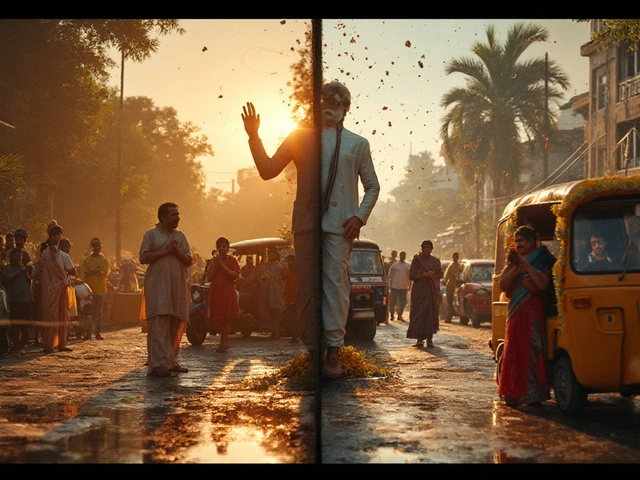
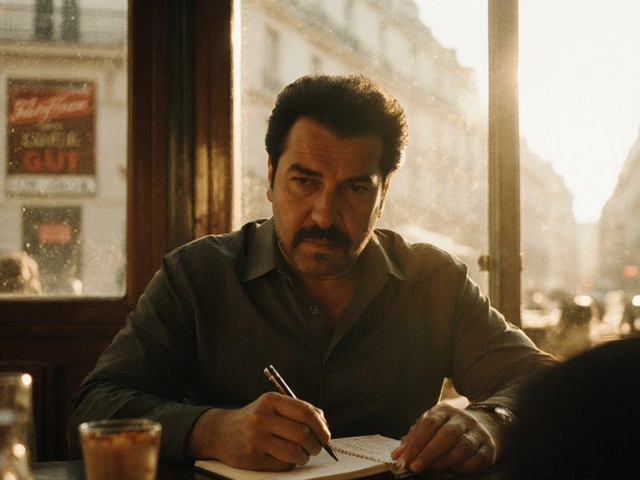

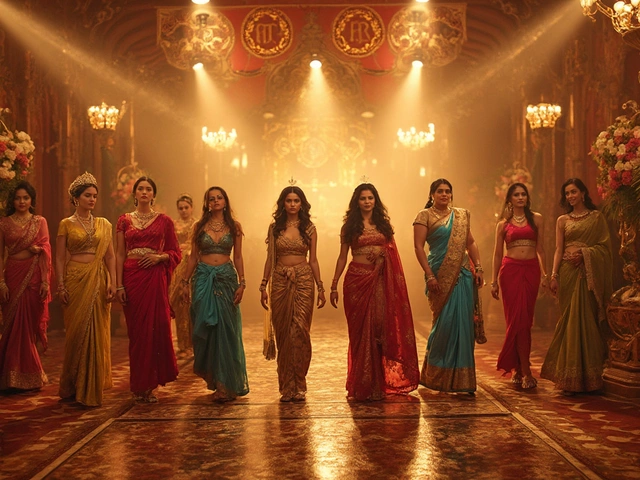
Post A Comment